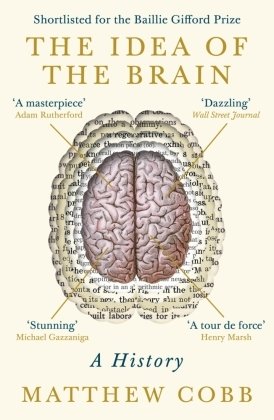Shortlisted for the 2020 Baillie Gifford Prize
A New Statesman Book of the Year
This is the story of our quest to understand the most mysterious object in the universe: the human brain.
Today we tend to picture it as a computer. Earlier scientists thought about it in their own technological terms: as a telephone switchboard, or a clock, or all manner of fantastic mechanical or hydraulic devices. Could the right metaphor unlock the its deepest secrets once and for all?
Galloping through centuries of wild speculation and ingenious, sometimes macabre anatomical investigations, scientist and historian Matthew Cobb reveals how we came to our present state of knowledge. Our latest theories allow us to create artificial memories in the brain of a mouse, and to build AI programmes capable of extraordinary cognitive feats. A complete understanding seems within our grasp.
But to make that final breakthrough, we may need a radical new approach. At every step of our quest, Cobb shows that it was new ideas that brought illumination. Where, he asks, might the next one come from? What will it be?

